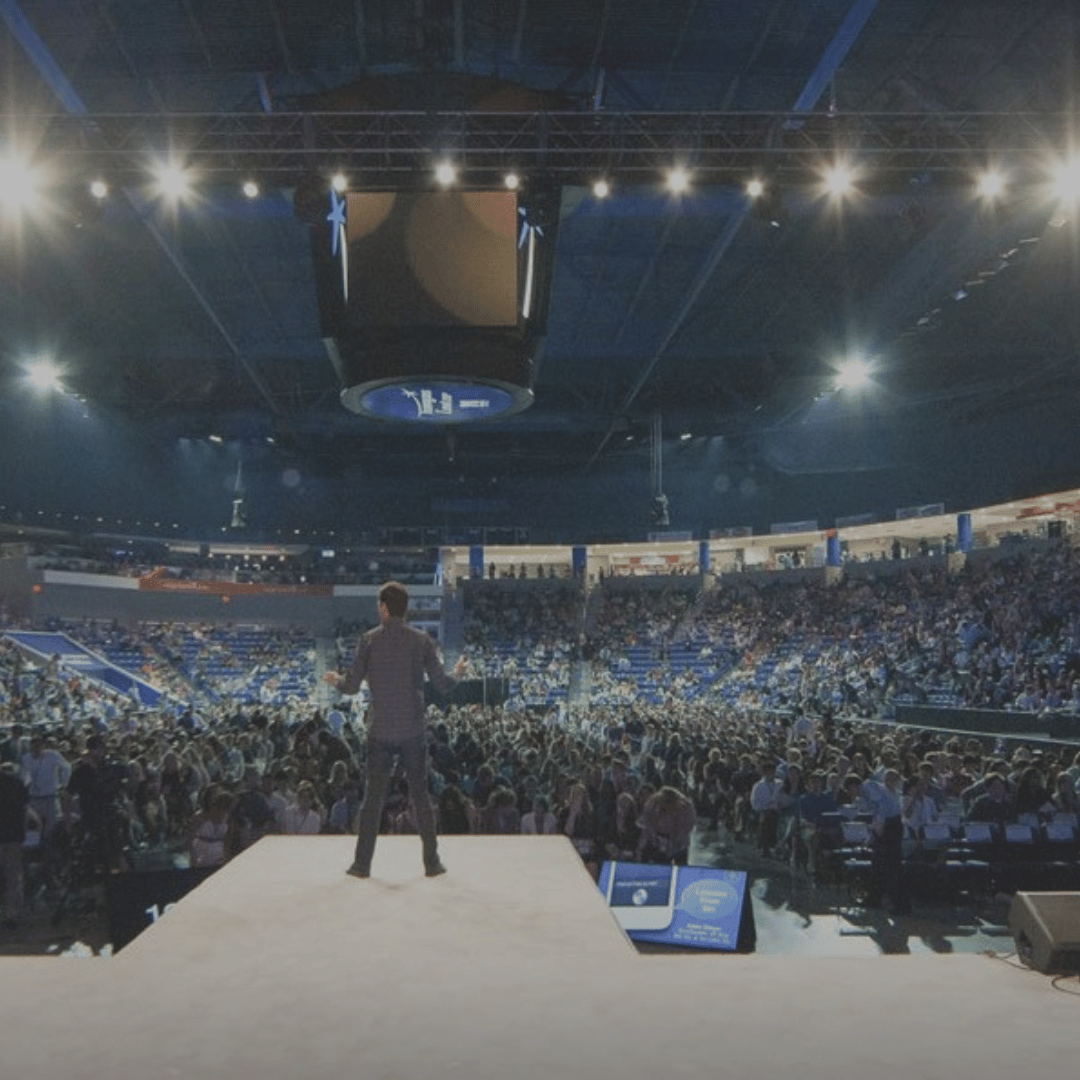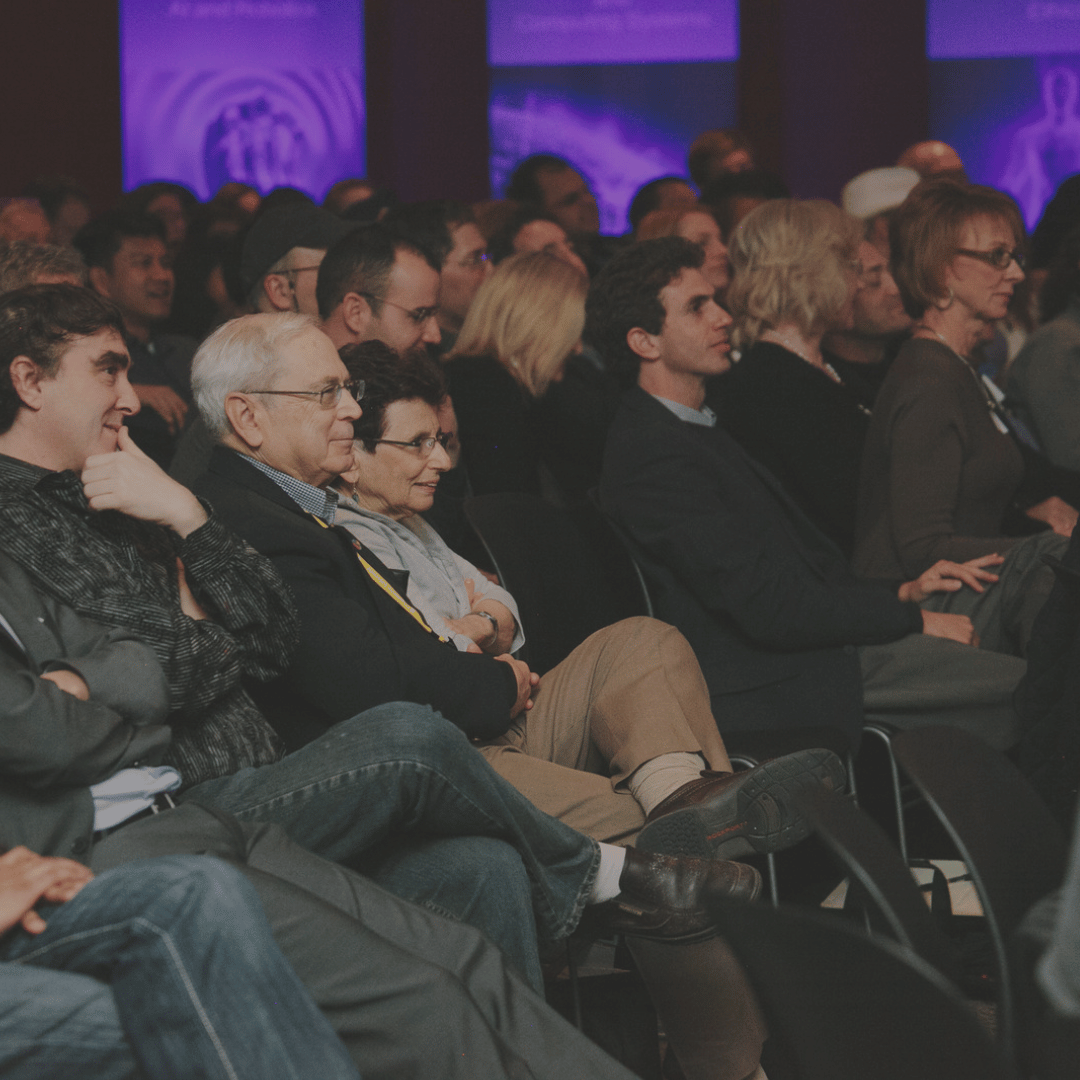The 5-Step 'Upgrade Your Event’ Guide to Booking Keynote Speakers
Bringing in keynote speakers is essential when planning an event, but it often feels impossible to lock down a speaker you’re actually excited about.
As an event planner, finding a speaker for your next conference or event can be time-consuming and frustrating. You and your team spend hours and even days researching speakers, reaching out to them, and hoping they’ll respond. That means less time focusing on other essential event logistics. And if you don’t spend the extra time, a bad speaker might put your audience to sleep.
This guide will examine event planners’ and executives' challenges in finding and booking speakers. We will also provide five critical elements any team must address to transform your audience’s glazed-over eyes to the wide-eyed excitement for your event of the year.
An event planner’s nightmare.
Finding the right speaker can be a nightmare for event planners. Your team spends hours researching and cold emailing to determine if their fee is out of your budget or if their schedule is already booked. The insane number of options can also be frustrating, as event planners may not feel confident knowing what excites their audience and executives. It’s easy to put it off until the last minute, with many event planners scrambling weeks before an event to lock down a speaker in the knick of time.
Sticking the landing with the keynote speech can be just as challenging. Keynote speakers often require special attention to navigate the event and meet their tech requirements, which often creates last-minute issues and stress around the event. That’s a lot to juggle at once.
It’s easy to blame yourself as an event planner when things feel off. Was the speaker engaging enough? Did it feel relevant to what the audience was there to see? A weak keynote speaker always creates a little insecurity for the event planner. I had no idea that the speaker didn’t know how to engage an audience… does that mean my executive board, who can fire me, thinks I can’t create an engaging event?
Despised by audiences.
For the audience, keynote speakers can be just as frustrating. Many keynote speakers often present re-packaged material that has nothing to do with who’s in the room. Or, even worse, they have no stage presence and struggle to take their eyes off their slides.
Audiences aren’t often presented with a speaker that tells an engaging story and has a relevant background to support their lessons.
The content itself can feel disengaging and impersonal. There is often a lot of fluff and general information, and it can feel like the keynote speaker is simply regurgitating information that’s readily available online. Too often, keynote speakers haven’t impacted the technology or topic they’re talking about. They frame themselves as insiders without a track record of experience actually building the thing.
However, there are steps an event planner can take to transform their events and book jaw-dropping keynote speakers. With over 25+ years of experience booking speakers, I’ve experienced the effectiveness of the strategies below first-hand. The following steps can help transform corporate events from being a begrudging office escape to feeling like actual paid time off.
1.
It All Starts With The Audience and Your Customer. They Need To Be Heard, Excited and Engaged.
As an event planner, you are the front-row audience member to the keynote speaker. You have to imagine the speaker from your attendee's point of view, customize the event to their objectives, and overdeliver on the experience for your audience and your stakeholders.
Clearly define what your goals and KPIs are for the event. What does a win look like?
Establish who your audience is for the keynote speaker. Why would they listen to your speaker, attend your event, or buy your product? How can you build credibility with them?
Rather than just imagining what they like, take the time actually to talk to some of your potential attendees about their past event experiences. Ask them for their honest opinion to see if you’re on track or completely off-base on your hypothesis. While it may feel intuitive to you, you’ll often be surprised by their responses.
Once you feel you have a strong foundational understanding of your customer, ensure it aligns with your executive team’s vision. You have the tough job of making sure everyone involved is happy and often have to manage conflicting interests.
Decide what’s most important. Realistically, it’s impossible for a speaker or event to account for everything, but you must ensure that you execute the most important aspects of your event and speaker for the most success.
2.
Your Hard Work Should Look Invisible.
One of your primary goals should be making the event feel effortless for your executives, audience, and organizers. So to make sure you’re not scrambling at the last minute, it makes sense to get the process started as early as possible. As the event planner, you must balance the staff, promotion material, venue booking, and a speaker for everything to create an outstanding experience.
Establish your budgets and resources as soon as possible. One of the most time-consuming parts of booking a speaker is negotiating and playing telephone with your team and the speaker or agency. The better your understanding of your budget, the more time you can save going back and forth over email.
Sign a contract the moment negotiations are finalized. Contracts are like your event planning insurance policy that helps you avoid ending up screwed and without a speaker.
Always have a backup plan. The value of planning far ahead is that you can focus on handling the emergency when something comes up, such as a venue cancellation or a family emergency from your headlining speaker. If things are left to the last minute, it’s easy to get overwhelmed with how much you have to pull together in such a short period of time.
3.
Judge a Speaker For Their Content, Not Their Name.
Start with a mindset change. Reframe your speaker booking process, and understand that the reputation of a speaker doesn’t always correlate with whether they’re the right fit for your event. The in-person experience a speaker creates is more important than the flashiness of their name on your brochure or website.
Don’t just name-chase. Many incredible speakers that could be a great fit for your event don’t show up in the first Google search. I’m not saying that well-known keynote speakers can’t be a good fit. If you have a large budget and a more general audience, there are many fantastic household names that also create great experiences. However, there are just as many, if not more, speakers who are just as accomplished, enthusiastic, and captivating but happen to have less of an online presence.
Look for keynote speakers that do the thing, not just talk about it. Most people learn better from doing, not listening or looking. So why not learn from someone who’s actually creating the change you want to learn about? I mean, who wants to learn how to become a better basketball player from a color commentator instead of someone in the NBA?
Find someone relevant to you
4.
Set Everyone Up For Success.
You and the keynote speaker you book are on the same team. It’s important to bring them into the fold once you’ve signed a contract to ensure they have all the necessary resources to crush the keynote.
Host a kickoff meeting with the speaker that’s at least 30 minutes to discuss logistics and meet them pre-event.
Discuss what they need for their keynote. Do they need a specific microphone? Will their slides include a video with sound? Make sure you have all of this information 30 days in advance to present it when you meet with the tech team.
If you’re hosting a panel or fireside chat, ensure your speaker or speakers have the questions before the event. Just like for a keynote, a prepared speaker will be a lot more engaging and have more to say than one who’s making up an answer to a question on the spot. It also avoids the awkward moment where panel speakers play microphone hot-potato to avoid a question.
Last but not least, make them feel welcome! Creating an amazing experience for a speaker turns them into an evangelist for your company or event. Whether posting it on their social media or talking to others about how amazing their time was, they can increase your brand reach beyond their talk.
5.
Sit Back and Enjoy The Applause.
Often, it’s easy to get caught up in the constant leap from event to event. Take a second to celebrate your win!
Use the opportunity to receive feedback. What did the audience think of the speaker? What could be improved for next time? Was your hypothesis about the speakers fit right?
Disregard the haters. It’s important to distinguish between who has meaningful feedback and who is just upset. It’s impossible to please everyone and the unhappiest will always be the loudest.
Event Planning is an Art Form
Event planners can transform corporate events from boring and snooze-inducing to engaging and uplifting masterpieces by taking the proper steps. Always remember that it takes a village working together to create a wonder.
Sincerely,
The Team at Speak About AI
Bring The Speak About AI Team on Board.
Speak About AI simplifies the process of booking experts in artificial intelligence for your keynote talk, fireside chat, or panel discussion so you can focus on the 1000s of other little details on your plate.
Reach out to see how we can help you plan your event.




